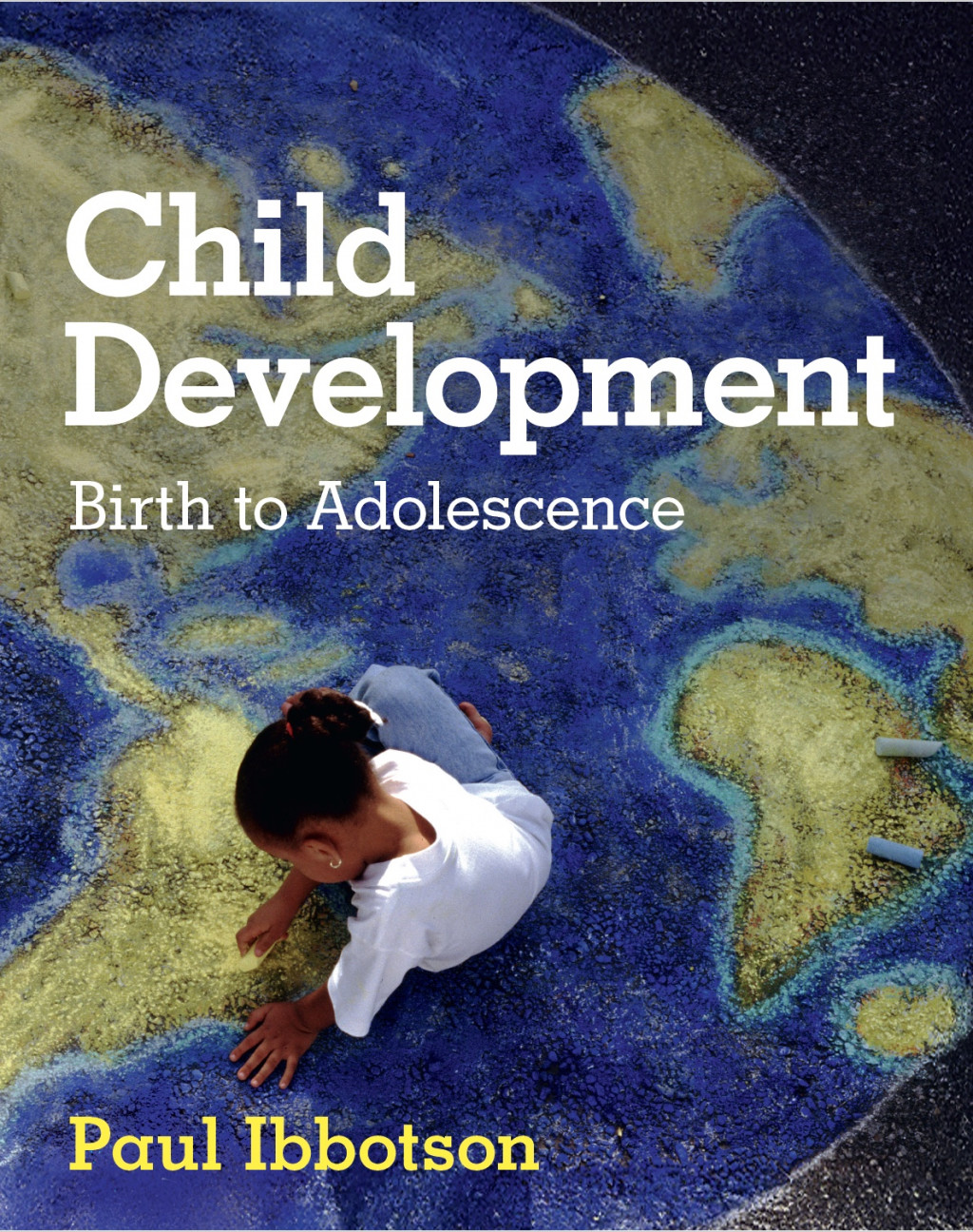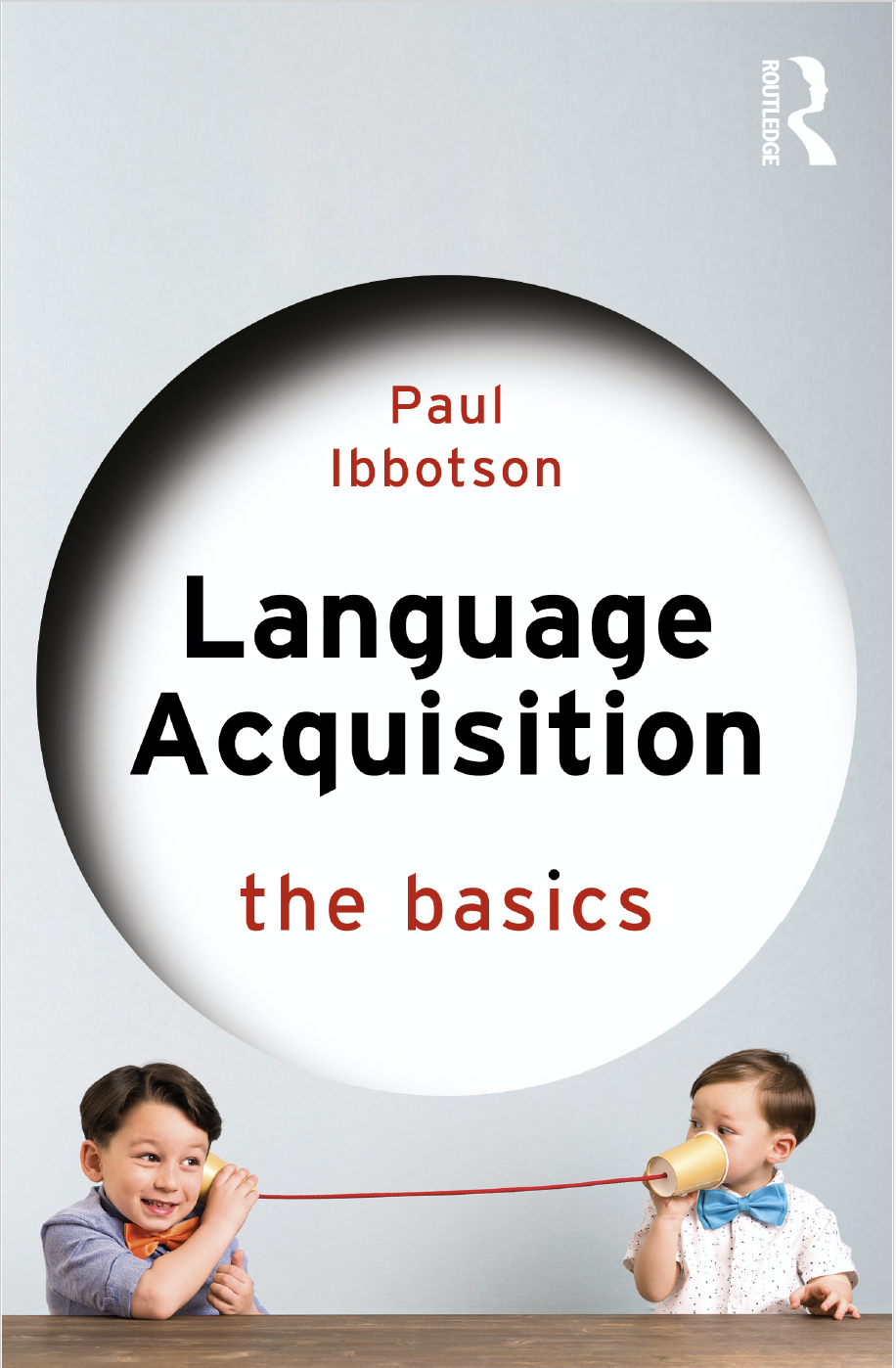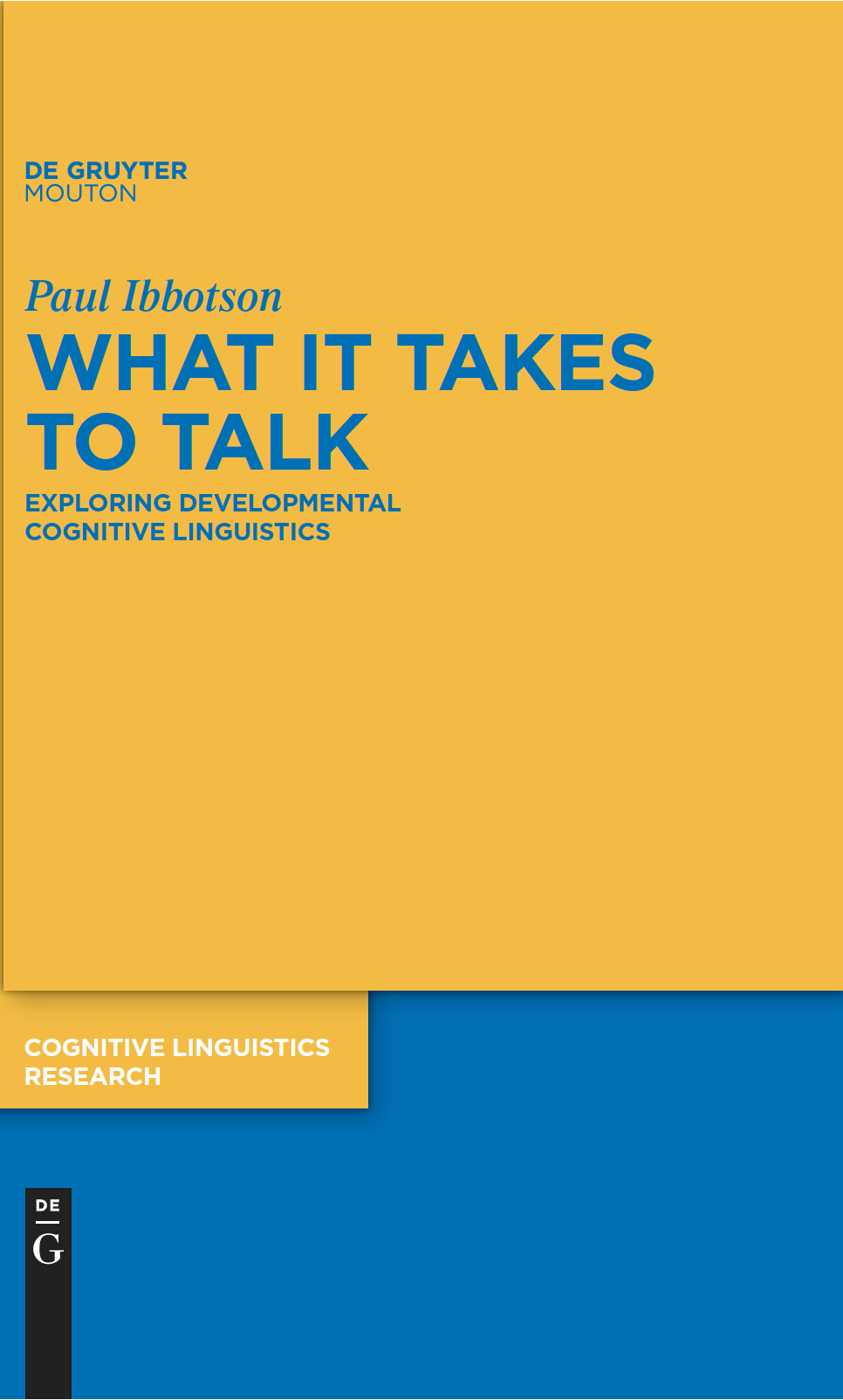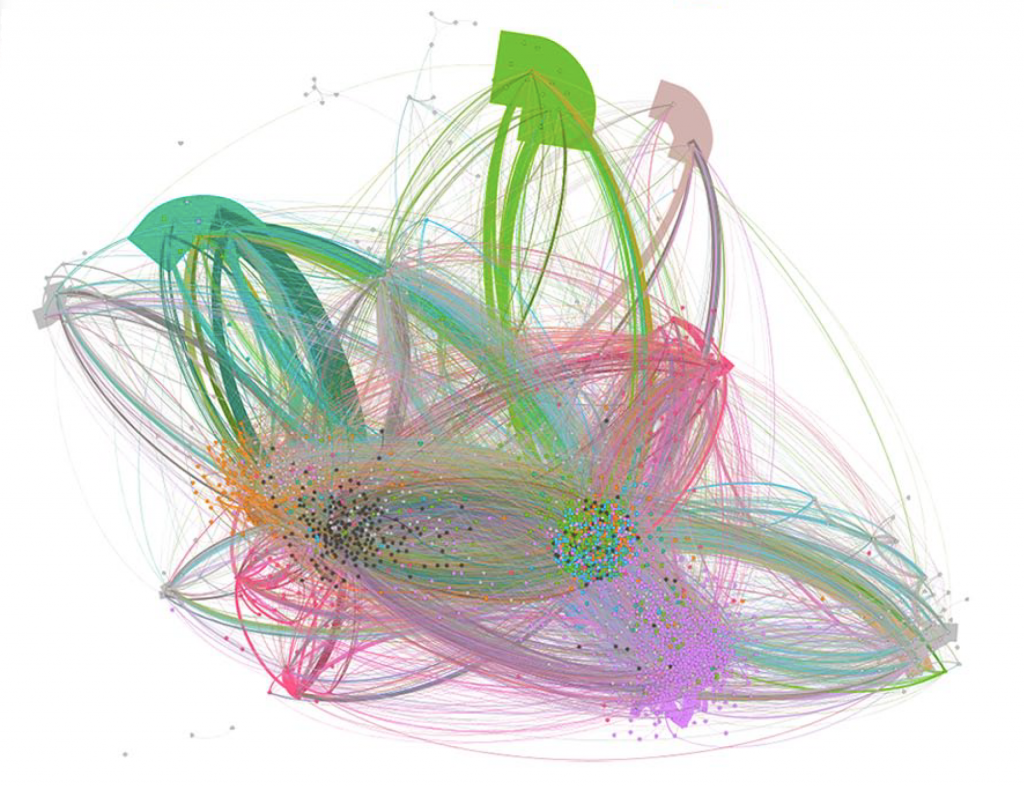
Dr Paul Ibbotson
Senior Lecturer In Developmental Psychology
School of Education, Childhood, Youth & Sport
Biography
Professional biography
Dr. Paul Ibbotson is a senior lecturer in Child Development at The Open University. Previously he worked as a Research Fellow at the Max Planck Child Study Centre, University of Manchester. He holds qualifications in Linguistics (MA; UCL) and Psychology (PGDip; Nottingham, PhD; Manchester).
Research interests
Paul teaches, researches, and writes about how children think and behave, with a particular in language and cognitive development. He is the author of numerous scientifitic papers, popular articles, and books.
Child Development: Birth to Adolescence

Take a global tour of childhood that spans 50 countries and explore everyday questions such as 'Why does love matter?', 'How do children learn right from wrong'? and 'Why do adolescent relationships feel like a matter of life and death?' Combining psychology, anthropology, and evolution, you will learn about topics such as language, morality, empathy, creativity, learning and cooperation. Discover how children's skills develop, how they adapt to solve challenges, and what makes you, you. Divided into three chronological sections – early years, middle childhood, and adolescence – this book is enriched with a full set of pedagogical features, including key points to help you retain the main takeaway of each section, space for recap, a glossary of key terms, learning outcomes and chapter summaries. Embedded videos and animations throughout bring ideas to life and explain the methods researchers use to reveal the secrets of child development.
Reviews of Child Development: Birth to Adolesence
"A brilliant synthesis of evolutionary, anthropological, and psychological insights into childhood. Ibbotson writes with clarity and warmth, bringing global diversity to the forefront. A great read for anyone interested in what it means to grow up human."
Dr. Gül Deniz Salali, Lecturer in Evolutionary Anthropology, University College London.
"A great textbook. It stands out in many ways: beautifully written, has an inclusive conversational approach, reframes the content around a set of questions, and highlights similarities and differences in child development across different contexts and cultures. I’m so impressed, and I’ll definitely be recommending it to my own students."
Prof. Christopher Jarrold, Chair of the British Psychological Society Developmental Section, Lecturer in Developmental Psychology, University of Bristiol.
"This is the textbook to go for if you are ever wondering why young children are becoming who they are in our society and how parents, peers, teachers, and the wider community shape a child’s life in a complex yet fascinating human development journey. The interdisciplinary approach brings new insights into understanding child development from integrated psychological, anthropological, and evolutional perspectives."
Dr. Xiaofei Qi, Lecturer in Early Childhood Education, Durham University.
Language Acquisition: The Basics

Language Acquisition: The Basics is an accessible introduction to the must-know issues in child language development. Covering key topics drawn from contemporary psychology, linguistics and neuroscience, readers are introduced to fundamental concepts, methods, controversies, and discoveries. It follows the remarkable journey children take; from becoming sensitive to language before birth, to the time they string their first words together; from when they use language playfully, to when they tell stories, hold conversations, and share complex ideas. Using examples from seventy-three different languages, Ibbotson sets this development in a diverse cross-cultural context, as well as describing the universal psychological foundations that allow language to happen. This book, which includes further reading suggestions in each chapter and a glossary of key terms, is the perfect easy-to-understand introductory text for students, teachers, clinicians or anyone interested in language development. Drawing together the latest research on typical, atypical and multilingual development, it is the concise beginners guide to the field.
Reviews of Language Acquisition: The Basics
"Language Acquisition: The Basics is very balanced and well-written, the structure is clear and user-friendly, and I like the inclusion of different sign languages - an excellent book"
Cholë Marshall, Professor of Psychology, Language and Education at University College London, Editor-in-Chief of the journal First Language.
“The book gives plenty of good examples from child language, not just from English. But most importantly, it explains the many different experimental methods used in acquisition research, as well as the cognitive, data-driven learning mechanisms at stake.”
Heike Behrens Professor of Cognitive Linguistics and Language Acquisition Research, University of Basel and Editorial Board of The Journal of Child Language.
"I enjoyed reading it, a cool format!"
Patricia Brooks, Professor of Psychology at the College of Staten Island, City University of New York, director of the Language Learning Laboratory
What It Takes To Talk: Exploring Developmental Cognitive Linguistics

This book puts cognition back at the heart of the language learning process and challenges the idea that language acquisition can be meaningfully understood as a purely linguistic phenomenon. For each domain placed under the spotlight - memory, attention, inhibition, categorisation, analogy and social cognition - the book examines how they shape the development of sounds, words and grammar. The unfolding cognitive and social world of the child interacts with, constrains, and predicts language use at its deepest levels. The conclusion is that language is special, not because it is an encapsulated module separate from the rest of cognition, but because of the forms it can take rather than the parts it is made of, and because it could be nature’s finest example of cognitive recycling and reuse.
Reviews of What It Takes To Talk
“A super book! this is just the kind of reorientation that the field needs - a very well-argued and compelling monograph”
Professor Nick Chater, author of The Language Game, Creating Language and Empiricism and Language Learnability
"In all, Paul Ibbotson’s book is compact, rich in research-based information and very clear both in structure and in message. It is valuable, for example, to those linguists like myself who have thus far sought corresponding information from studies of cognitive psychology. In addition, it is likely that a reader familiar with child language studies will revisit existing findings from a more wide-ranging perspective...Overall, I consider the book to be informative and enlightening for researchers and teachers of any disciplines who are interested in language acquisition and the relationship between language and cognition"
Dr. Maija Surakka, book review in First Language 2021;41(5):671-673.
"The book proposes an integrative approach offered by Developmental Cognitive Linguistics to study language acquisition, which provides fresh insights into how and why language develops the way it does. It not only highlights the importance of social and cognitive capabilities in language acquisition, but also bridges the gap between Cognitive Linguistics and language acquisition, which reflects the cross-disciplinary trend in linguistic studies. It contributes substantially to the existing literature of language acquisition, Cognitive Linguistics, psycholinguistics and psychology. As such, it is highly recommended to researchers who are interested in these areas."
Yanyan Jiang & Shuqiong Wu, book review in Interaction Studies 2022; 23(1):143-149
"The book offers a fresh insight into the area of language and cognition, leading readers to be interested in further exploring the nature of the language learning process from the cognitive perspective."
Yufei Ren, Tsinghua University, book review for Linguist List
Impact and engagement
Paul has provided novel empirical, analytical and methodological advances to the field of child development (see publications), communicating his resarch in popular science writing for The Guardian, Scientific American, The Conversation and The British Psychological Society.
A network of one mother's speech to their child. Dots are individual words, lines are when one word follows another.

Open Access works include:
The effects of family, culture and sex on linguistic development across 20 languages. Developmental Science
The Development of Working Memory: Sex Differences in Reaction Times and Accuracy, Journal of Cognition and Development
The Development of Executive Function: Mechanisms of Change and Functional Pressures, Journal of Cognition and Development
Working memory training improves children's syntactic ability but not vice versa: A randomized control trial. Journal of Experimental Child Psychology
The structure of executive functioning in 11- to 14-year-olds with and without special educational needs British Journal of Developmental Psychology
Dying to cooperate: the role of environmental harshness in human collaboration Behavioral Ecology
Effort Perception is Made More Accurate with More Effort and When Cooperating with Slackers Nature - Scientific Reports
The Scope of Usage-Based Theory Frontiers in Psychology
Inhibitory Control Predicts Grammatical Ability PLoS ONE
My collaborators
- Prof. Michael Tomasello (Duke University, USA)
- Prof. William Browne (University of Bristol, UK)
- Dr. Bruce Rawlings (University of Durham, UK)
- Dr. Ebru Ger (University of Bern, Switzerland)
- Dr. Ernesto Roque-Gutierrez (University of Oxford)
- Prof. Tilbe Göksun (Koç University, Turkey)
- Dr. Marie Barking (Tilberg University, Netherlands)
- Dr. Rose M. Hartman (University of Oregon, USA)
- Prof. Elena Lieven (University of Manchester, UK)
- Prof. Anna Theaksron (University of Manchester, UK)
- Prof. Alan McKane (University of Manchester, UK)
- Dr Kristina Nilsson Björkenstam (Stockholm University, Sweden.)
- Prof. Christoph Hauert (University of British Columbia, Canada)
- Dr. Vsevolod Salnikov (University of Namur, Belgium)
- Prof. Lucy Henry (City University, London)
- Prof. Henrik Danielson (Linköping Uinversity, Sweden)
- Prof. Karen Page (University College London)
- Dr Stefan Hartmnan (Heinrich-Heine-University Dusseldorf, Germany)
- Dr. Nicolas Kock (Ludwig Maximilian University of Munich, Germany)
- Dr. Antje Quick (University of Leipzig, Germany)
Publications
Book
Language Acquisition: The Basics (2022)
What it Takes to Talk: Exploring Developmental Cognitive Linguistics (2020)
Book Chapter
Word Classes in Psycholinguistics (2023)
Journal Article
A dynamic network approach to bilingual child data (2026)
Frequency, redundancy, and context in bilingual acquisition (2025)
The effects of family, culture and sex on linguistic development across 20 languages (2024)
The Development of Executive Function: Mechanisms of Change and Functional Pressures (2023)
The Development of Working Memory: Sex Differences in Accuracy and Reaction Times (2023)
Dying to cooperate: the role of environmental harshness in human collaboration (2022)
A dynamic network analysis of emergent grammar (2019)
Effort Perception is Made More Accurate with More Effort and When Cooperating with Slackers (2019)
Goldilocks Forgetting in Cross-Situational Learning (2018)
Frequency filter: an open access tool for analysing language development (2018)
Inhibitory Control Predicts Grammatical Ability (2015)
Productivity of Noun Slots in Verb Frames (2015)
Little dictators: a developmental meta-analysis of prosocial behavior (2014)
The scope of usage-based theory (2013)
The communicative contexts of grammatical aspect use in English (2013)
The attention-grammar interface: eye-gaze cues structural choice in children and adults (2013)
Semantics of the transitive construction: prototype effects and developmental comparisons (2012)
Abstracting grammar from social–cognitive foundations: a developmental sketch of learning (2011)
The role of pronoun frames in early comprehension of transitive constructions in English (2011)
Prototype constructions in early language acquisition (2009)